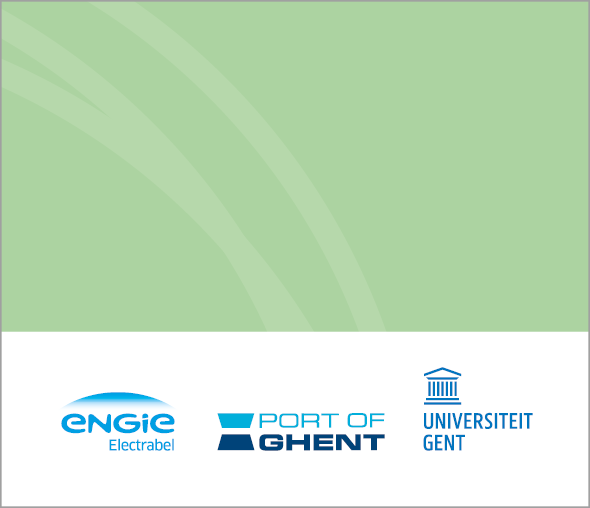

Ghent University exists of many different entities (university services, teams, faculties, administration, research groups...). Here we explain the 'brand architecture' of our university: how can every sub-entity from one organisation present itself? The brand 'Ghent University' is always prominent as the main sender.
Always communicate from the main sender 'Ghent University'. This is always the main brand. This way it is always clear that the message is communicated from our university.
Within that unity there is room for diversity. This model shows how every possible sub-entity of Ghent University can be presented.
Is the communication entirely coming from Ghent University? Use the corporate design: logos, colour, typography, illustrations... See 1. Basic Principles
Ghent University officially has only one corporate design. The Ghent University logo and faculty icons are the only official main brands. Do not create your own logos or styles.
Ghent University wants to get away from a too wide range of different logos and styles within the university. Simply present yourself typographically as an entity of Ghent University. Fill in the new templates and respect the corporate design system as described on this page when you design something.
Are you part of Ghent University? Be proud of your organization. Do not put forward any other, original logo or style. This harms the image of our university. If we're all on the same track, we can present ourselves as a strong and unified brand that also honours Ghent University. Outsiders recognize Ghent University as the main brand, then the faculties and then the sub-entities. There is no room for other logos and styles. This approach is officially confirmed by the Executive Board on 23 October 2014.
Are you communicating from a collaboration with other organizations? For example other universities, colleges, commercial brands, sponsoring, spin-offs.... Then only add the Ghent University logo to the mutual communication. See 8.5 Endorsed
We communicate Ghent University as main sender. This includes the university services (functional domains, teams).
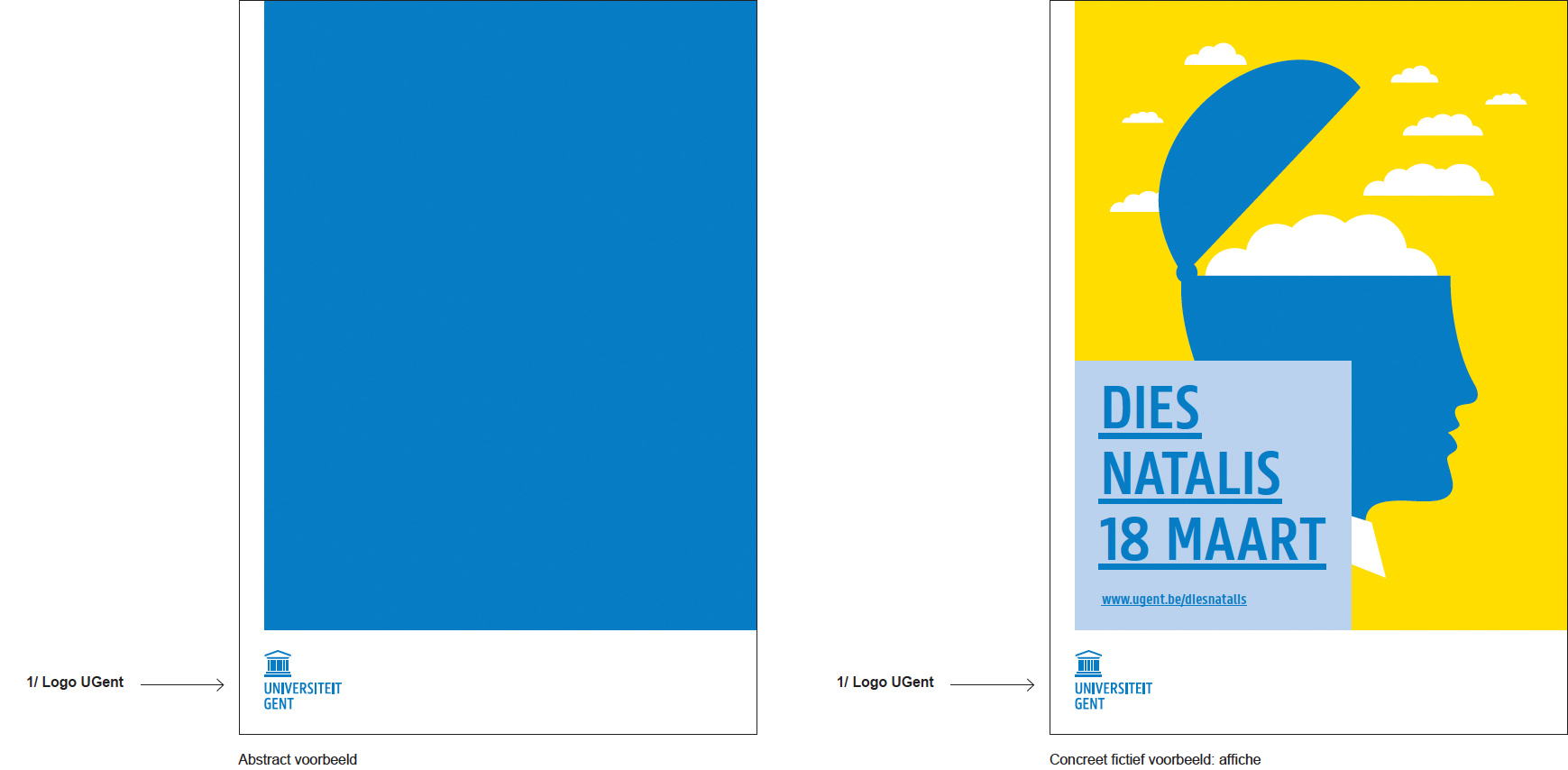
We communicate Ghent University as main sender. This category contains umbrella entities of Ghent University (such as the University library) and research groups over multiple faculties.
Because every medium is different, in practice every example needs to be reviewed to see how the elements are best presented. Do this typograpically, do not use a seperate logo.
We communicate Ghent University as main sender.
You can find the faculties under category 1. Ghent University remains the main sender, but the faculties are prominently represented by their icon and colour.
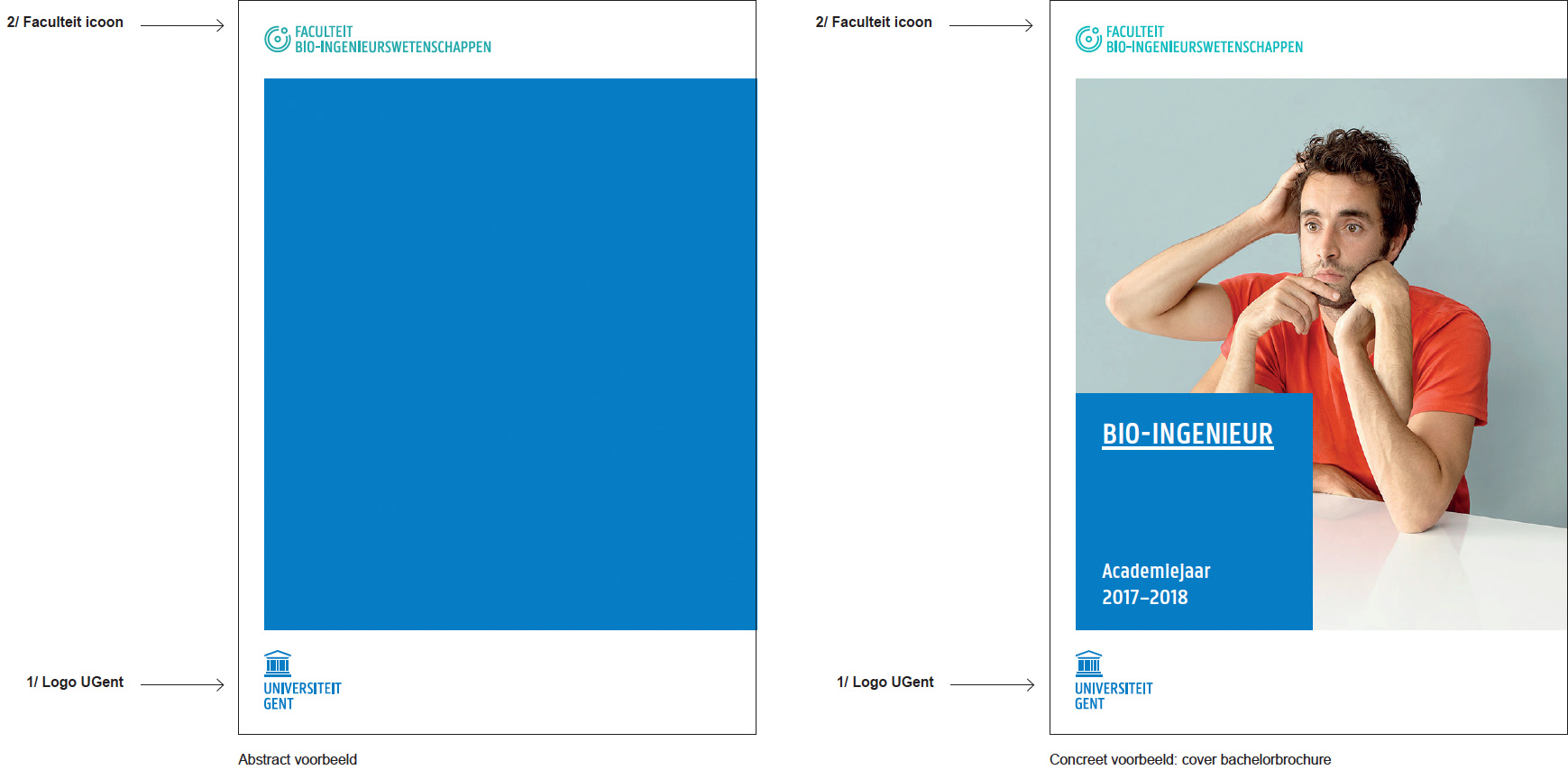
We communicate Ghent University as main sender. Category B also includes the faculties, just like category A.
This category contains the academic departments and research groups within a faculty. These are presented in the content. Because every medium is different, in practice every example needs to be reviewed to see how the elements are best presented. Avoid to do this typograpically, do not use a seperate logo.
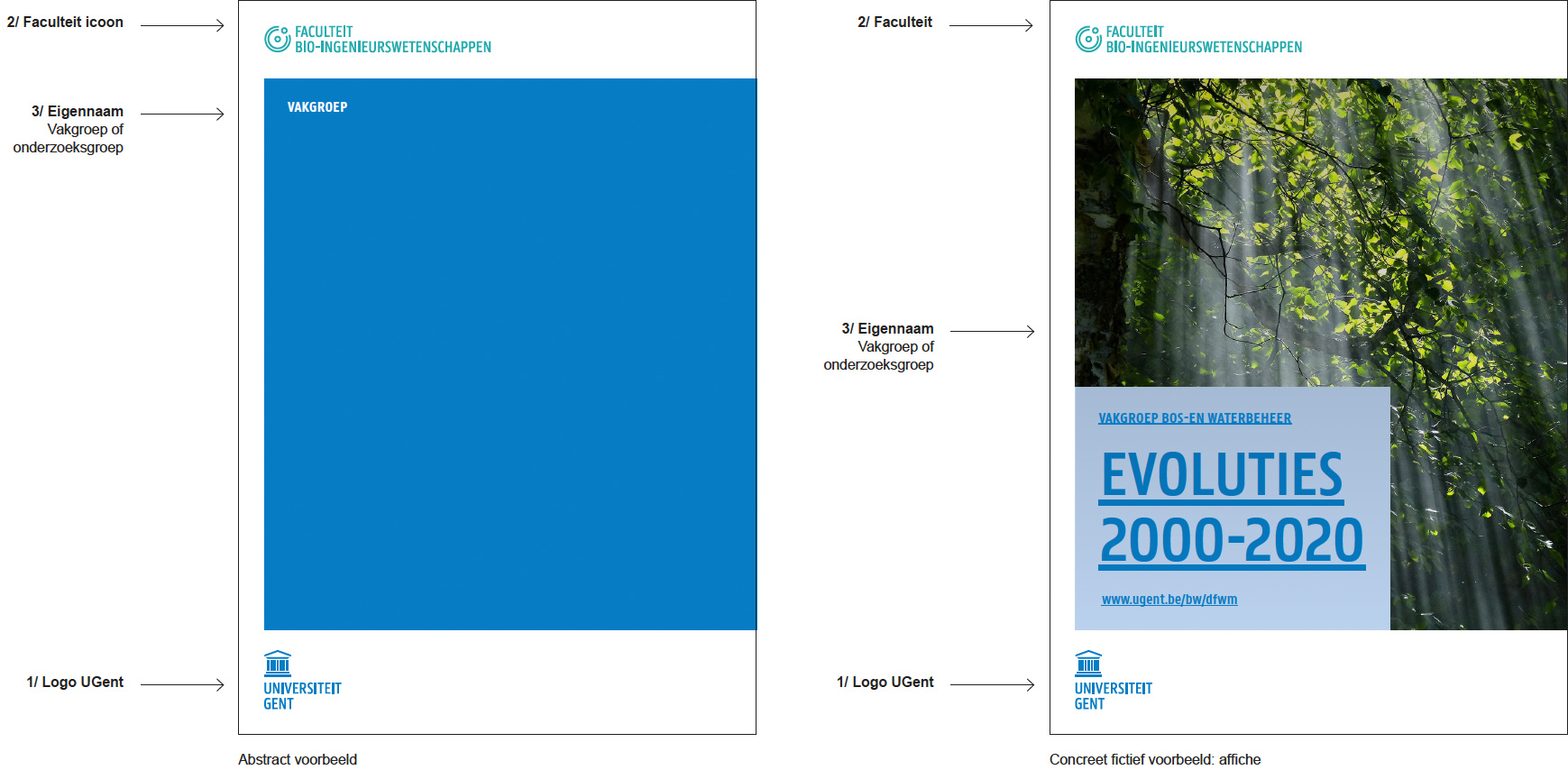
example: theoretical model (left) - poster (right)
In this category the collaborations with external brands are central, with Ghent University as the main sender (for example VIB). These collaborations are under category 1, where the logo of the external partner is placed next to the Ghent University logo.
Add the logo of the external partner in the white space next to the Ghent University logo. In the template for presentation slides, there is space especially programmed to easily add these logos. Do this for printed matter for events as well: on a poster, flyer...
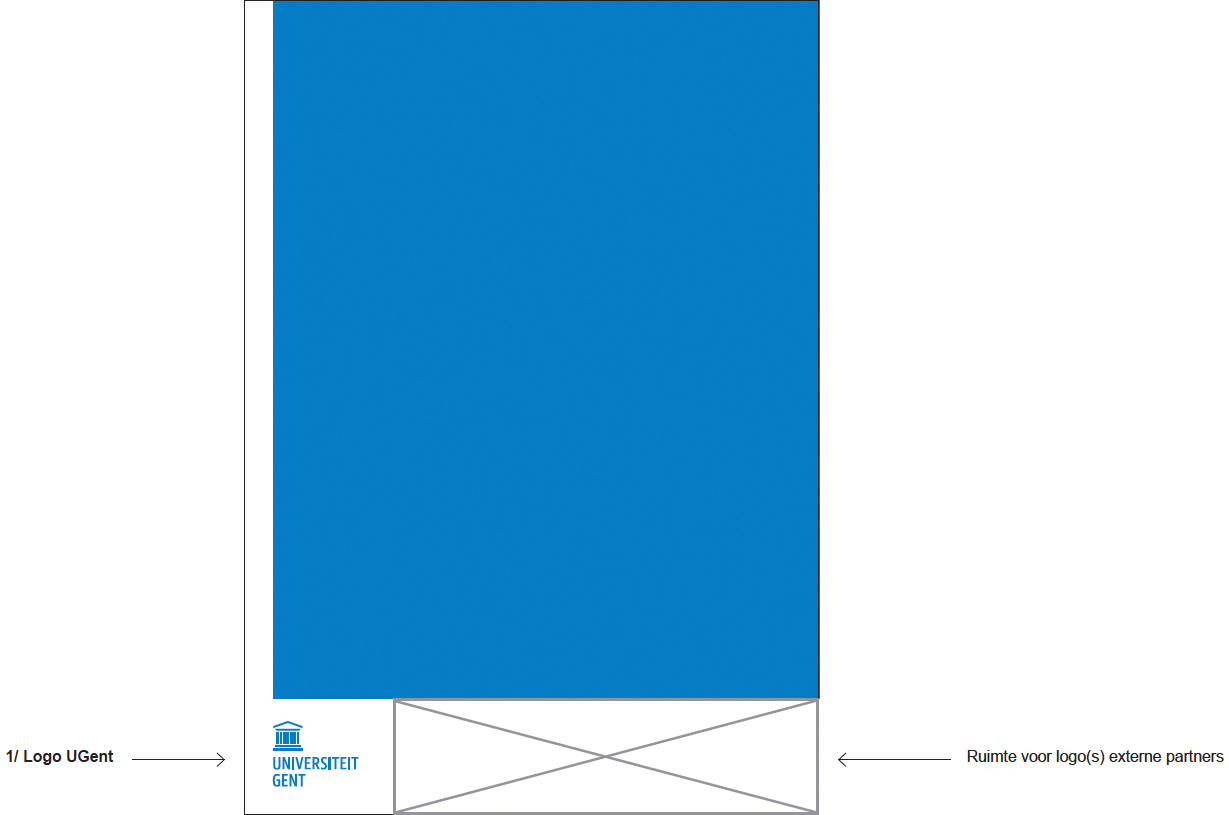
Download the logos of the main external partners of Ghent University:
You can also communicate from a collaboration with other organizations, such as other universities, colleges, commercial brands, sponsoring...
In this case, only the Ghent University logo is added in the mutual communication. Make sure all logos are displayed in size proportionally.
Only new brands that are the result of a collaboration with other (commercial) organizations, for example spin-offs, can design a new style or logo if wanted.
